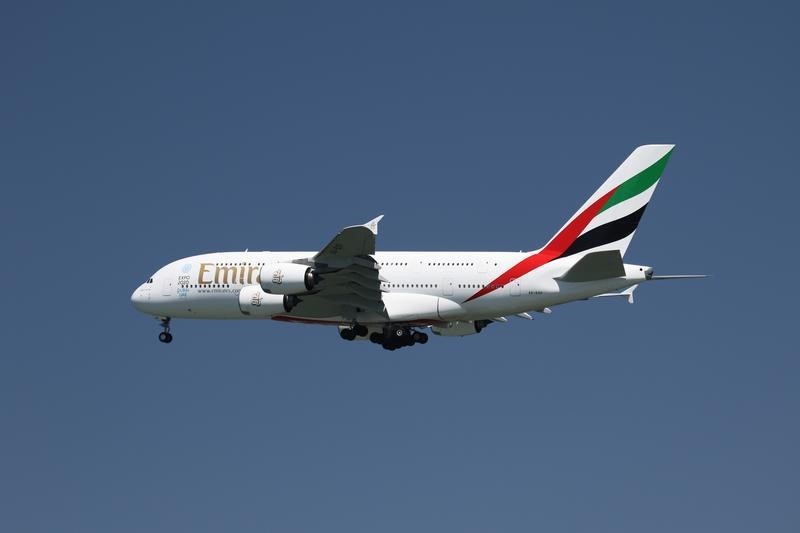By Nadia Saleem
DUBAI (Reuters) - Dubai's Emirates airline [EMIRA.UL] on Tuesday denied claims its parent company absorbed fuel hedge losses from the carrier, giving its most detailed response yet to allegations it has violated the U.S. Open Skies agreement with the United Arab Emirates.
U.S. airlines have charged Emirates received at least $5 billion in subsidies since 2004, including hedge losses that its state-owned parent company assumed. The subsidies allegedly allowed Emirates to begin driving down prices and driving out competitors from key markets.
Peers Etihad Airways and Qatar Airways have received even greater government subsidies, the U.S. carriers say.
In a nearly 400-page report released on its website Tuesday, Emirates said its parent company, Investment Corporation of Dubai, had not paid for bad bets the airline made on fuel prices. Rather, ICD profited from the hedges. Emirates said it briefed U.S. officials on the report on Monday.
The financial disclosures mark the latest move by Emirates to deter the Obama administration from revisiting aviation agreements with the United Arab Emirates and Qatar, per requests from Delta Air Lines Inc (N:DAL), United Continental Holdings Inc (N:UAL) and American Airlines Group Inc (O:AAL).
"Emirates can submit as many pages as it wants," said Jill Zuckman, spokeswoman for the coalition of U.S. airlines and unions known as the Partnership for Open & Fair Skies. "Our investigation shows that these massive subsidies have allowed Emirates, Etihad and Qatar (Airways) to expand far beyond what market forces could ever support."
A sharp decline in oil prices in 2008 and 2009 put many airlines in the red globally, as accounting principles required companies to report how much hedge contracts would have lost had they settled at the time.
Emirates said Tuesday ICD assumed its hedge contracts as U.S. carriers claimed. However, the hedge contracts had not yet settled, and neither ICD nor the government of Dubai was at a loss.
The airline said it voluntarily declared dividends to ICD to match any losses the contracts would have upon maturity. The result turned out to be a gain of more than $100 million for ICD, Emirates said.
In total, Emirates said it returned more than $3.3 billion to its shareholders in dividends from a capital base of $218 million in the last 20 years.
The airline also rejected claims that it received below-market terms from suppliers.

"The legacy carriers have failed to make a persuasive case," Emirates President Tim Clark told reporters in Washington D.C.
(Additional reporting By Jeffrey Dastin in New York)